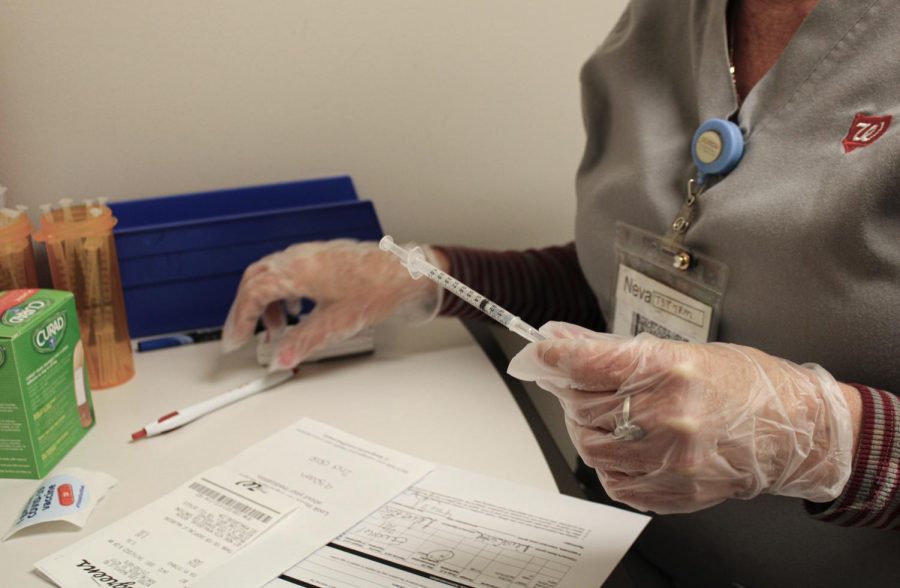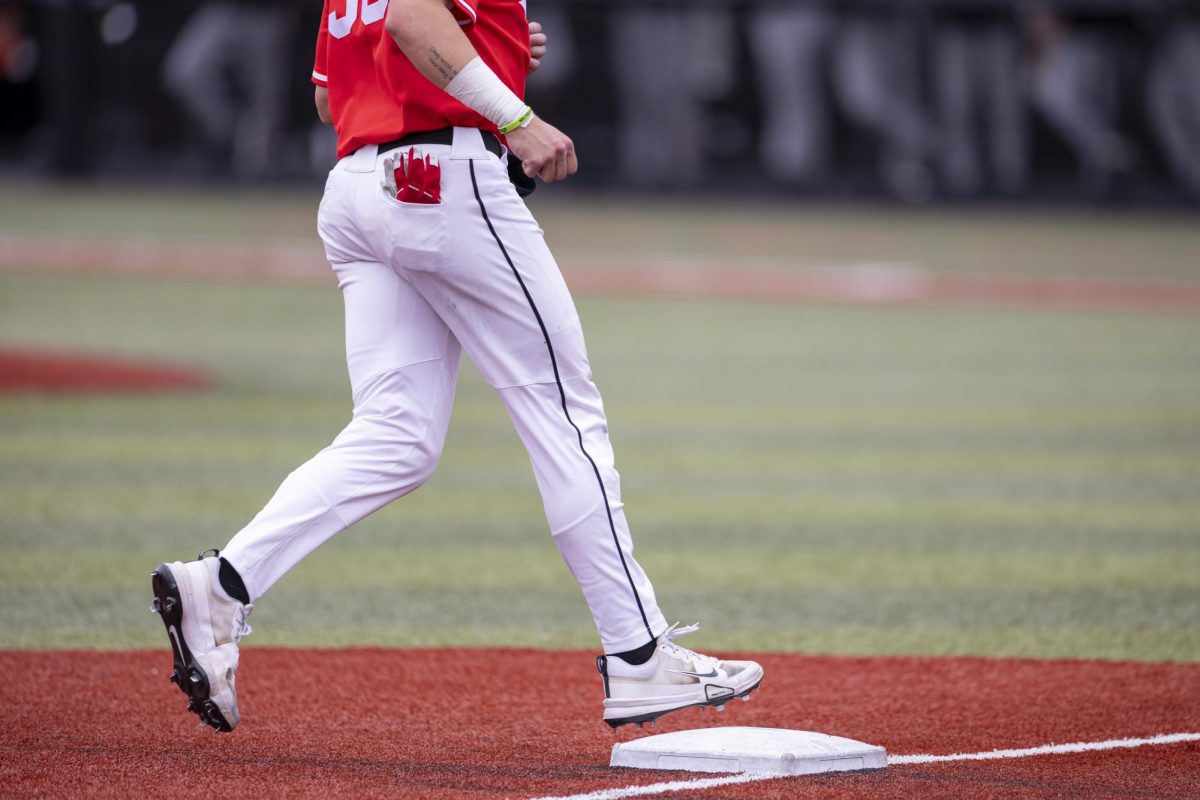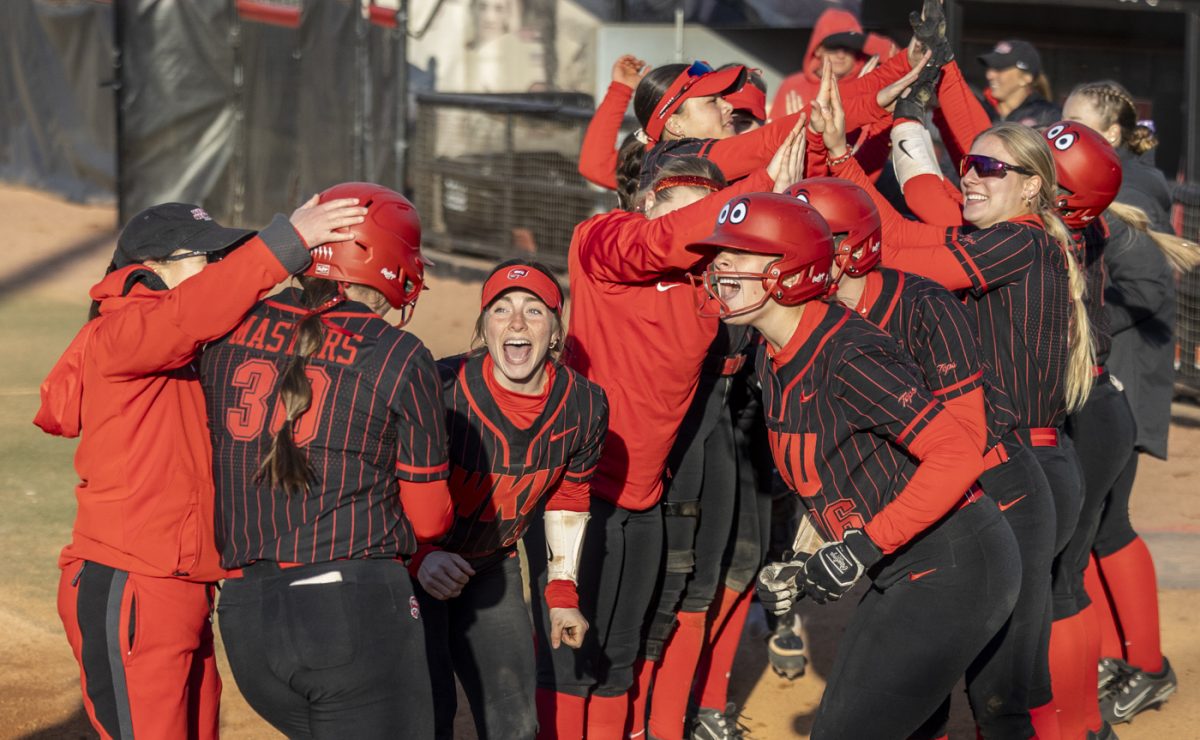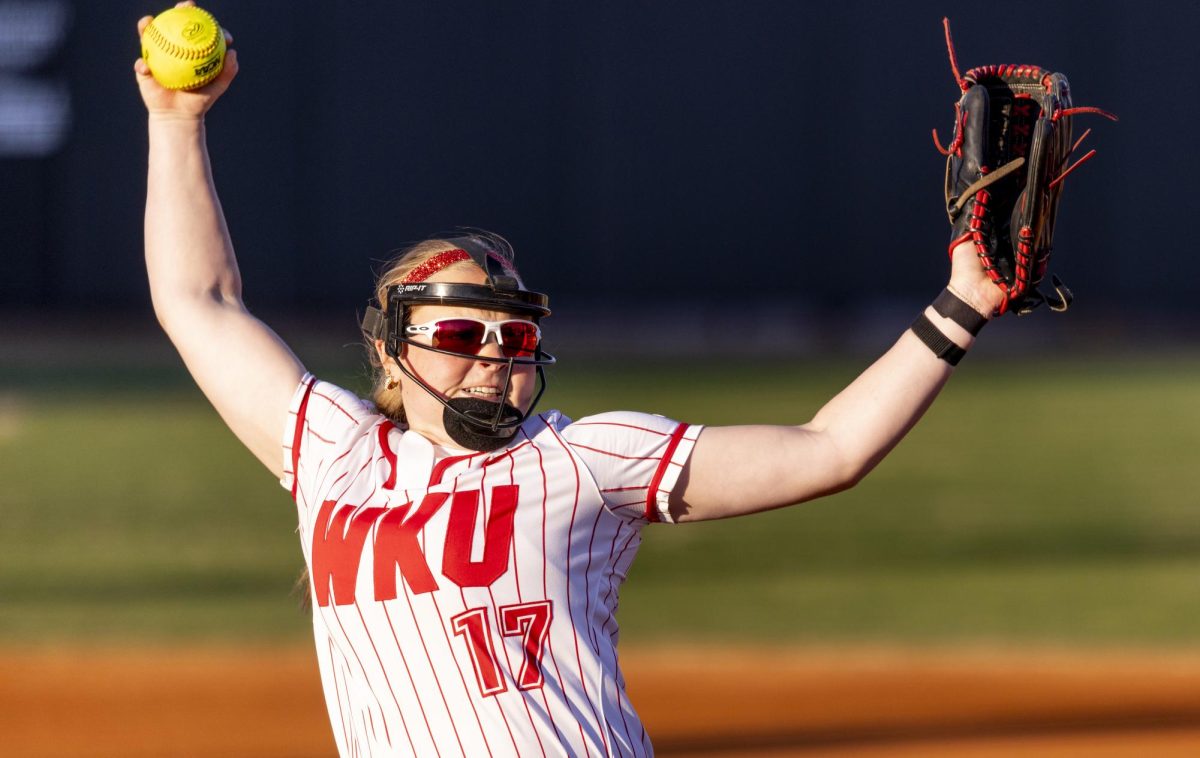How WKU designs its COVID-19 protocol
Jace Lux, WKU’s director of media relations and university spokesperson, explained that the university looks both to the CDC and its in-state peers to set COVID-19 policies.
January 24, 2022
Decisions about possible changes in COVID-19 policies from public Kentucky universities have been questioned since the spike in omicron variant cases across the country.
WKU released a statement on spring COVID-19 restrictions in early January, stressing that the university will continue in-person learning alongside mask policies from last semester and quarantine guidance from the CDC.
Other Kentucky public universities are also keeping in-person learning. The University of Kentucky released very similar spring procedures; it will return to in-person learning but keep the indoor mask requirement and request that students get vaccinated.
The University of Louisville, Eastern Kentucky University and Murray State University are all following similar plans. All have returned to in-person learning with a mask requirement and are following the CDC’s newest quarantine and isolation policies.
Jace Lux, WKU’s director of media relations and university spokesperson, explained the process of deciding the university’s spring COVID-19 policies.
“We did track what other institutions in the state, and really other institutions around the country, were doing,” Lux said. “But mostly we were looking at the protocols we had in place and how well they have worked over the course of the pandemic, and we’re pretty confident in our decisions to begin the start of the semester as we had planned.”
As of Jan. 19, the University of Kentucky has a seven-day moving average of positive COVID-19 cases of 432. During the week of Jan. 10, the University of Louisville had 236 positive cases. At Murray State University, there were a total of 52 student and faculty cases during the week of Jan. 17. Since Jan. 14, WKU has had 200 positive cases, including those that have already recovered.
Lux also commented on the decision to start the semester at the planned date, rather than push back the start time like some universities across the state and country did.
“I know that some universities in the state adjusted their start time back a week, but all they did was adjust what was an earlier start time than ours to meet our start time,” Lux said. “If anything, I would say that a number of universities in the region adjusted to meet what we were already doing, which I think is a pretty good position to be in.”
He also spoke on how the university will look to other public universities if COVID-19 precautions need to change. New developments will mostly be made by focusing on what specifically can be done to keep WKU safe.
“We certainly don’t want to be completely doing anything on an island, but I think more important than looking at [what] the other universities are doing is looking at what our needs are and what we need to be doing to best keep our student population and our faculty and staff safe,” Lux said.
Lux also touched on the university’s knowledge of how valuable a usual college experience is and how that is also factored in with these decisions, along with student safety.
“I do think over the last year and a half we’ve done a good job of that,” Lux said. “We’ve done a good job of keeping campus safe, but also being able to provide opportunities for our students. We realize that your time in college is one of the most important and formative times. We want to make sure that we’re helping our students to maximize that experience.”
Lux explained that most WKU COVID-19 precautions are built on guidance from the CDC. The team monitoring the COVID-19 situation across campus is watching to make sure the precautions put in place continue to keep students, faculty and staff safe.
“We are very much following the guidance from the CDC, as I think pretty much every other institution and most private businesses are doing as well,” Lux said. “We’re not doing anything that would just fly in the face of the recommendations of the CDC, and so I think that that’s the most striking example of where we’re turning for guidance as these protocols are being developed.”
News reporter Alexandria Anderson can be reached at alexandria.anderson337@topper.wku.edu.













